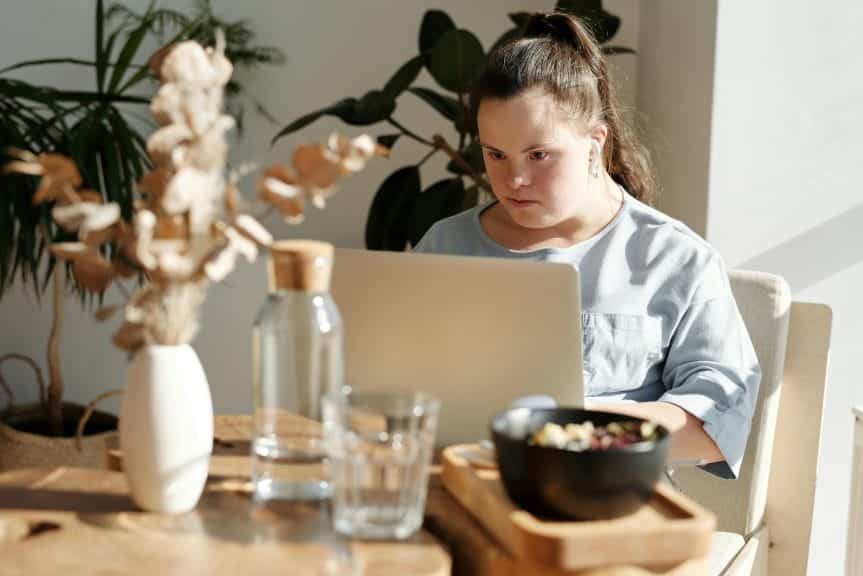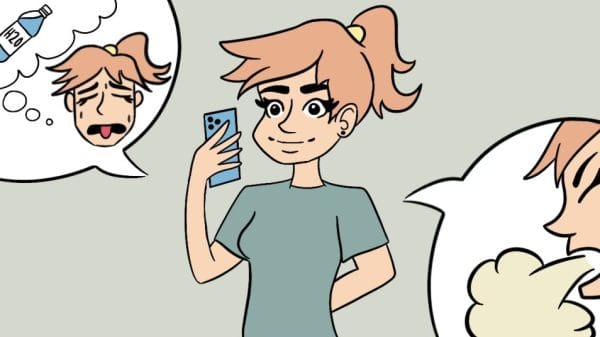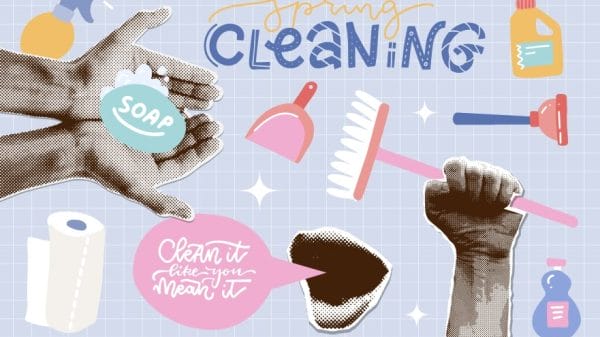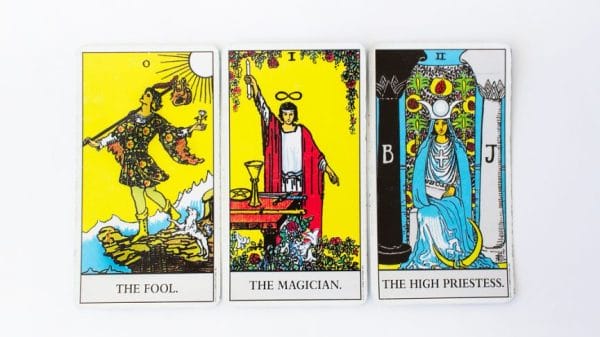Recently, a new ad has been making waves as it aims to challenge assumptions about people with Down syndrome. Released before World Down Syndrome Day on March 21st, the ad has rapidly gained virality across various social media platforms. It is just one of many advocacy examples bringing awareness to the many myths in circulation surrounding the condition.
The ad draws inspiration from a speech given by an Italian woman with Down syndrome, Marta Sodano. In that speech Sodano gave at the United Nations, she reflects on the concept of self-fulfilling prophecies regarding her experiences in school.
Please note: this video contains some explicit language. Viewer discretion is advised.
Furthermore, the ad’s message is simple: “Assume I can.” If you assume people with Down syndrome can’t do something, they might not get the chance to prove otherwise. The reality of these assumptions is reflected across social media. It isn’t hard to find comment sections pushing negative and false narratives.
The false narratives surrounding people with Down syndrome
There are many myths circulating across the internet about Down syndrome. Many people are under the assumption that people with Down syndrome suffer from low cognitive ability. They also assume people with Down syndrome can only partake in special needs courses. Therefore, they believe people with Down syndrome will always live with their parents, never have a full-time job or marry.
These are all myths…not true.

To illustrate, according to the National Down Syndrome Society, most people with Down syndrome have mild to moderate cognitive or intellectual disability. This is not a reflection of an individual’s talents and abilities.
People with Down syndrome can learn in a typical classroom setting. They can achieve high school GEDs and go to college or a higher education equivalent. In other words, they can learn Shakespeare.
Additionally, individuals with Down syndrome have diverse career opportunities. Like everyone else, they can live independently, form relationships, and marry. The stereotypes and assumptions circulating are not only incorrect, but they’re harmful.
However, many individuals and organizations actively fight these myths by sharing stories and inherently changing the narrative. Moreover, they give those who are not exposed to people with Down syndrome a new perspective. Oftentimes, people who are not around others with disabilities are unable to understand them, which impacts how they see them.
Sometimes, this impact can be positive, but most times, it is in a negative light. People will often look down on them or underestimate their abilities. This, in turn, leads the individual to doubt their own abilities. Instead of contradicting them, we should nurture our minds and talents as we do with everyone else.
Positive Down syndrome representation in the media
Across social media platforms, I have come across many creators who are positively representing their community. One of these creators, actress Sofia Sanchez, was featured in one of the biggest films of 2023, The Hunger Games: A Ballad of Songbirds and Snakes.
Sofia is a Ukrainian American actress and model. Though most people now know her as Wovey from the Hunger Games film, she has been an advocate for people with Down syndrome since she was a kid. Now, she has made an even bigger name for herself and an even bigger step towards representation for individuals with Down syndrome.
Sofia and her mom made a series of viral Facebook videos called “Down Syndrome is Not Scary.” In these videos, Sofia expressed that Down Syndrome is something to celebrate. There is often a fear surrounding it, which inhibits the negative connotations many have for it. However, Sofia combats these ideas and shares her experiences on social media.
Kayla Kosmalski
Another creator making a difference in the narrative surrounding Down syndrome is Kayla Kosmalski. Kayla has Down syndrome, but that is the least interesting thing about her, according to her website. I’d have to agree, given that Kayla is a varsity cheerleader and an honors student.
A video of Kayla’s reaction to making the cheer team went viral in 2022. Accordingly, she also gained quite an online following. Her recent TikToks display more of her achievements, such as her acceptance. Now, Kayla is set to star in an upcoming 2024 film, “I Win.”
As such an accomplished creator, student, and artist, Kayla pushes against and brings down the narratives that suppress her. Moreover, she is a great example of how commitment and dedication bring success to all people, no matter how society sees them.
In another viral video, Kayla did her version of the “of course” trend. The “of course” trend is when a user makes statements about themselves that should be obvious given their identity. This trend is important in regarding Kayla because many of her examples go against the general narrative.
Kayla’s advocacy for individuals with Down syndrome and her many accomplishments in cheer, academics, acting, and modeling are changing the narrative of what it means to have Down syndrome.
Down For Love and Mattel
Another example of Down Syndrome advocacy is the popular Netflix show Down for Love. The show, based in New Zealand, follows people with Down syndrome on their quest to find love and build relationships.
The show tackles the myth that people with Down syndrome aren’t capable of having romantic relationships. Featuring individuals with Down syndrome from various backgrounds gives insight into just how much they can accomplish.
Down for Love doesn’t focus on people with Down syndrome’s disabilities; it focuses on their abilities. In essence, those with Down syndrome deserve the same rights and opportunities as any other adult. This includes falling in love, having sex, and getting married if they choose to.
There are some examples of major corporations making the effort to include people with Down syndrome. Moreover, Mattel recently released their Barbie doll with Down syndrome in 2023. This was another big step of representation as kids around the world will be exposed to all types of people while also helping children with Down syndrome not feel like they’re alone.
Though most people applauded the company for their diversity and inclusion, others criticized the doll. Some commenters claimed that the Barbie doll was another example of catering to the woke mob. Others argued that a Barbie with Down Syndrome was not diverse enough, and the company needed to make Barbies who identified as LGBTQ.
It seems that Down syndrome representation often results in online discourse, good and bad. However, representation is just as important as representation in any other form. We all know representation is important, not only so everyone can be seen in one form or another but also when considering the implications of its effects. For children especially, representation shows them they matter and that they are not alone in the world.
The dangers of avoiding or bashing Down syndrome representation
It’s no secret that representation is a big deal in 2024. Every television show and movie is making strides to feature more women, people of color, and LGBTQ community members. As for people with Down Syndrome, representation still seems to be in its earliest stages. Yet, we as a society need this representation now more than ever.
With the rise of prenatal screening tests across the United States and Europe, the number of babies born with Down syndrome has significantly decreased. For example, these tests were introduced in Iceland in the early 2000s. Now, almost 100% of pregnancies with positive tests for Down syndrome are terminated in the country. The United States appears to be heading in a similar direction, with termination rates of 67% for babies with Down syndrome.
In my opinion, it seems that these myths about Down syndrome aren’t just dangerous; they’re deadly. Arguably, the mass termination of Down syndrome pregnancies globally is one of the largest forms of genetic cleansing our world has ever seen.
I’m not advocating against women who chose to terminate a pregnancy because the baby was found to have Down syndrome. However, I’m advocating that parents expecting a child with Down syndrome are not misinformed about what their child’s life will look like.
People with Down syndrome have a life expectancy of 60 years. Many people born with Down syndrome can live full, healthy lives. As stated in the viral ad “Assume That I Can So Maybe I Will,” people with Down syndrome can do and already do great things if given the opportunity to. Since there is a mass campaign of misinformation about Down syndrome online. The only way to start a new narrative is to erase the old one. Let’s stop assuming that people with Down Syndrome can’t. Assume they can. So maybe they will.















Tanya Ansley
April 19, 2024 at 1:12 am
Thank you for advocating and giving a voice – a powerful way to influence change.